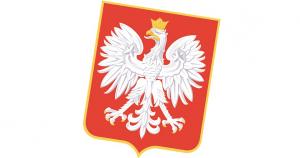 Politics is everywhere.
Politics is everywhere.
Try to think of one area where you have not run into contemporary politics in the last year. My church is liturgical, so unless the fall of Constantinople is still an issue, things have been fairly politics free, but I am better off than most people. Other areas of interest have not been so lucky: sports, literature discussions (even from Ancient Greece!), theology, have all become more political.
Some political discussions are necessary in a field like philosophy, but often these discussions are taking over other important topics. If there is a problem, find a political solution. If the church is struggling, what is our political witness? The Packers are owned by the public (including me!). Is this a model for America? (No. See John Hadl trade, the equivalent of sending Alaska and Hawaii to the Russians for some aging subs.)
Having ignored half of reality, the metaphysical, the punishment may be eternal politics, always politics, tariff policy for eternity.
The Polish philosopher and politician Ryszard Legutko resisted the grinding statism of socialism only to discover that yesterday’s socialists were the best EU bureaucrats. Why? Liberal democracy in the West had been tempted and fallen for some of the same errors as the socialists. Socialism had murdered millions, the West had not, Legutko does not make the two morally equivalent.
Yet.
Yet.
The West of the world has embraced a view of history where the “West wins,” a Utopian myth that overlooks the awful errors that the West has made to celebrate the “best-ness” of the West, and this has resulted in ubiquitous, iniquitous politics without end.
Damn.
The communist state not only did not wither away, but began to intrude into more of life. “Thank God,” the dissident thought, “in the West there is liberal democracy and so space for thought that is not political at all! A person can consider the lily and not consider even for a moment the class struggle.”
Liberal democracy can carve out space for a non-political moment, but this is rare, because liberal democratic man became intent on solutions, political solutions, for the obvious problem that happens when you let them, the people, the nardonik, vote and decide.
Legutko is right that liberalism in the West is dualistic (good and bad exist), and are defined by liberalism. People are offered choice, but only within the mainstream options. One cannot be for choice qua choice, but only choice that broadens choices that are pre-approved by the liberal consensus.
Legutko:
The modern stalwart of liberalism, Isaiah Berlin, was absolutely faithful to the liberal spirit when he said that the history of human thought could be viewed as a conflict between pluralism and monism, and that liberalism represents the former, whereas everything that is not liberal represents the latter.
This opinion, fairly typical, reveals the absurdity of the liberal claim. First, Berlin and other liberal-minded thinkers put duality—monism versus pluralism, closed versus open, freedom versus authority, tolerant versus autocratic—as the primary division, and by so doing had to assume that whoever supports pluralism must be for dualism. It is like saying that anyone who is for diversity must see the world dichotomously.
This leads to an even more bizarre conclusion: that whoever supports pluralism must favor liberalism, which means that anyone who wants to recognize the multiplicity of social arrangements and the diversity of human experience can accept only one philosophical and political philosophy. Given that in the course of the history of human thought there were dozens of different profoundly nonliberal philosophies—many of them of great intellectual value—such a conclusion can only be compared with Henry Ford’s famous statement about the Model T: in defense of pluralism, we give people the right to choose any available philosophy, provided that they choose liberalism.
The dualism of thinking tempts the liberal democracy to accrue greater amounts of political power in order to do good. There is no other option and resistance to any alternative to the liberal democratic consensus must be ceaseless. Even if people do not in the main want something, they must be persuaded endlessly until they do. Consent matters, but ‘no’ to a group like the EU does not mean ‘no,’ just a delay in saying ‘yes.’ As Legutko said in an earlier chapter the arc of history, morality all demand we hasten the Utopia that can come if we have the will.
Against the moral certainty of liberalism, in control of all the cultural institutions (schools, media), democracy succumbs to a uniformity of acceptable opinion according to Legutko. This seems accurate as it is hard to imagine a party being allowed traction in Great Britain, for example, that argued for increased powers for the monarch or the House of Lords. Similarly, though some changes in morality are new by historic standards, any party pressing for repeal would be consigned to the fringe.
One wonders if this lack of diversity creates interest in actual fringe ideas. If historically mainstream ideas, like traditional marriage or an active role for an aristocracy or monarch are given no traction, then more brutal ideas may use this lack of diversity in approaches to government as cover. In fact, the liberal consensus acts as a check on democracy with the European Union being the prime example.
If voters reject an EU mandate, they must vote again. Brexit cannot stand and the majority of the British must be dupes. The real power in the EU is not in parliament, the Duma under Tsar Nicholas II was more influential, but in the unelected aristocracy that runs the EU in the name of democracy. Any nation that dares vote against this consensus (Poland, Hungary, Italy) will have all the flaws of that government publicized. A nation that votes for the consensus (Spain) will not find the flaws of that government receiving equal condemnation.
Liberal democracy in Europe has, if Legutko, is correct started to succumb to the totalitarian temptation: we must be forced to be free.
Read the book.
—————————-
This is a five part series on this fascinating text: 1. 2. 3.












